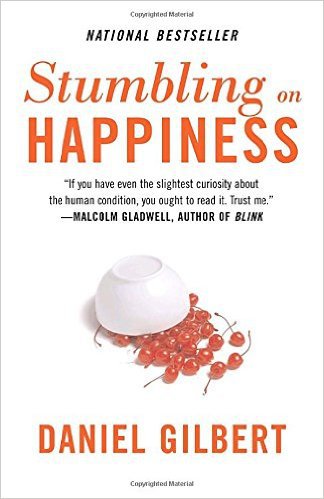
The greatest achievement of the human brain is its ability to imagine objects and episodes that do not exist in the realm of the real, and it is this ability that allows us to think about the future
The fact is that human beings come into this world with a passion for control, they go out of the world the same way, and research suggests that if they lose their ability to control things at any point between their entrance and their exit, they become unhappy, helpless, hopeless, and depressed.
In some ways the people we become have no more authority to speak on behalf of the people we used to be than do outside observers.
We tend for forget that our brains are talented forgers, weaving a tapestry of memory and perception whose detail is so compelling that its inauthenticity is rarely detected. In a sense, each of us is a counterfeiter who prints phony dollar bills and then happily accepts them for payment, unaware that he is both the perpetrator and victim of a well-orchestrated fraud.
The bottom line is this: the brain and the eye may have a contractual relationship in which the brain has agreed to believe what the eye sees, but in return the eye has agreed to look for what the brain wants.
We expect the next car, the next hour, or the next promotion to make us happy even though the last ones didn’t and even though others keep telling us that the next ones won’t.
Because we tend to remember the best of times and the worst of times instead of the most likely of times, the wealth of experience that young people admire does not always pay clear dividends.
The irony, of course, is that surrogation is a cheap (asking someone in a position you’re curious about about their current emotional state) and effective way to predict ones future emotions, but because we don’t realize just how similar we all are, we reject this reliable method and rely instead on our imaginations, as flawed and fallible as they may be.

Recent Comments